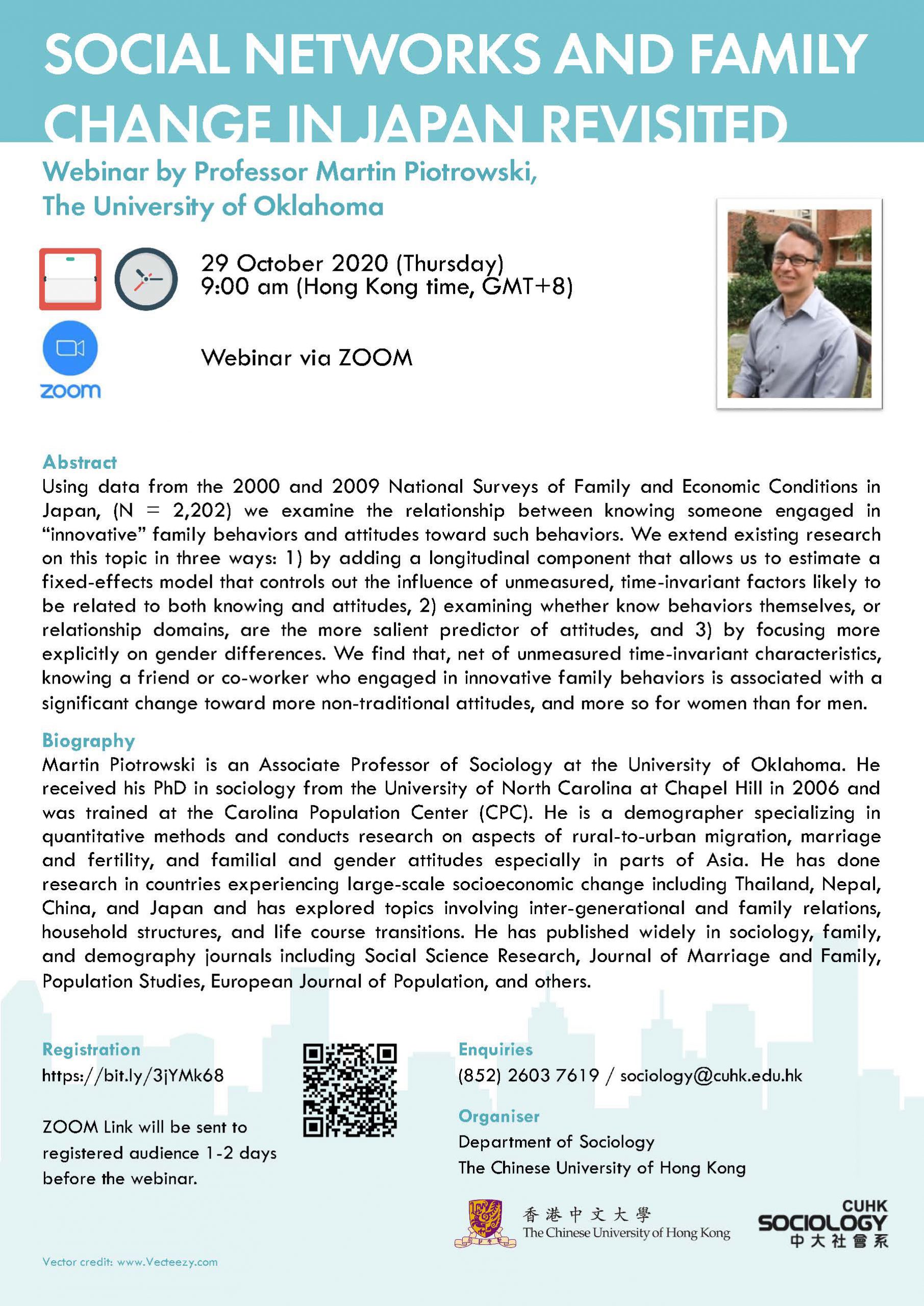
The University of Oklahoma.
sociology@cuhk.edu.hk
Abstract
Using data from the 2000 and 2009 National Surveys of Family and Economic Conditions in Japan, (N = 2,202) we examine the relationship between knowing someone engaged in “innovative” family behaviors and attitudes toward such behaviors. We extend existing research on this topic in three ways: 1) by adding a longitudinal component that allows us to estimate a fixed-effects model that controls out the influence of unmeasured, time-invariant factors likely to be related to both knowing and attitudes, 2) examining whether know behaviors themselves, or relationship domains, are the more salient predictor of attitudes, and 3) by focusing more explicitly on gender differences. We find that, net of unmeasured time-invariant characteristics, knowing a friend or co-worker who engaged in innovative family behaviors is associated with a significant change toward more non-traditional attitudes, and more so for women than for men.
Biography
Martin Piotrowski is an Associate Professor of Sociology at the University of Oklahoma. He received his PhD in sociology from the University of North Carolina at Chapel Hill in 2006 and was trained at the Carolina Population Center (CPC). He is a demographer specializing in quantitative methods and conducts research on aspects of rural-to-urban migration, marriage and fertility, and familial and gender attitudes especially in parts of Asia. He has done research in countries experiencing large-scale socioeconomic change including Thailand, Nepal, China, and Japan and has explored topics involving inter-generational and family relations, household structures, and life course transitions. He has published widely in sociology, family, and demography journals including Social Science Research, Journal of Marriage and Family, Population Studies, European Journal of Population, and others.

